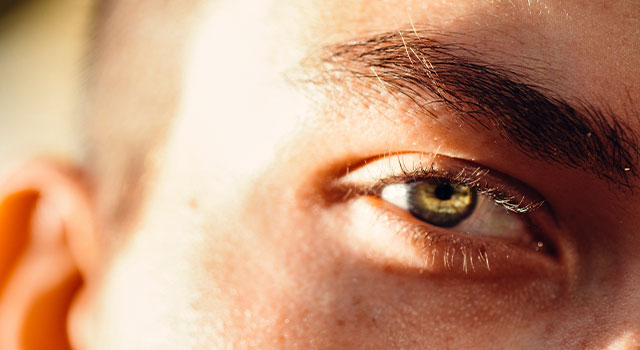 What if we told you that there are tiny critters living on your face? Would you believe it?
What if we told you that there are tiny critters living on your face? Would you believe it?
The truth is that just about every person on earth has Demodex mites living in their facial pores.
But before you run to the bathroom sink and start scrubbing your cheeks, read on to learn what these microscopic mites are, and how they can affect your eyes.
What are Demodex Mites?
Demodex mites are tiny 8-legged arachnids that make their home in the pores and hair follicles of your face. Fortunately, they’re too small to see with the naked eye, measuring only 0.4 mm long.
There are 2 types of Demodex mites: Demodex folliculorum and Demodex brevis. Both types can be found all over the face, but Demodex folliculorum mites tend to concentrate around the eyelash area.
Demodex mites live inside hair follicles, where they feed on dead skin cells and oily sebum that is secreted onto the hair shaft. That’s why they’re found in higher numbers around greasier areas of the body, like the eyes and nose.
The mites come out of the hair follicle at night to mate and then return in the morning. For this reason, symptoms of a Demodex infestation may be worse in the morning.
Demodex mites can be transferred from one host to another through facial skin or hair contact. They can also be introduced to a new host through shared makeup and cosmetics.
Having a small amount of Demodex mites seems to be harmless, but an overgrowth of mites — called “demodicosis” — can cause a host of symptoms affecting the eyes and other areas of the face. A Demodex infestation can also exacerbate pre-existing skin conditions like rosacea and acne.
How Can Demodex Mites Affect Your Eyes?
Too many Demodex mites can cause uncomfortable symptoms that may include:
- Itchy or burning eyes, especially in the morning
- Swollen eyelids
- Crusty eyes
- Red, irritated eyes
- Watery eyes
- Blurred or decreased vision
- Falling eyelashes
- Infected eyes
If you experience a yellowish discharge on your eyelashes mainly in the mornings, this could be a sign of a Demodex mite infestation.
Severe cases of demodicosis can lead to blepharitis — an inflammation of the eyelids. Blepharitis often leads to an inflammation of the cornea called keratitis, a serious condition that can lead to blindness if left untreated.
Risk Factors For Demodicosis
You’re more likely to have a Demodex mite outbreak if you:
- Have oily skin
- Wear makeup
- Sleep overnight without properly removing makeup
- Have poor personal hygiene
Some pre-existing conditions that increase the possibility of a Demodex outbreak include:
- A weakened immune system
- Alopecia
- Inflammatory acne
- Dermatitis
Your Dry Eye Optometrist Can Help
The good news is that Dr. James Evans can provide safe and effective treatment for your demodicosis.
Because Demodex mites are so small, they’re impossible to diagnose on your own. Only a comprehensive eye exam can determine the source of your symptoms.
Treatment for a Demodex mite infestation typically involves a medicated ointment that can prevent the mites from reproducing. In severe cases, oral medication may be prescribed. Your eye doctor may also manually clean the margins of your eyelids or recommend over-the-counter products that can help soothe irritation and promote healing.
If you suspect you have demodicosis or experience any of the symptoms listed above, contact Village Eye Centre to schedule an eye exam.
Village Eye Centre serves patients from Edmonton, Sherwood Park, St. Albert, Fort Saskatchewan, and throughout Alberta.
